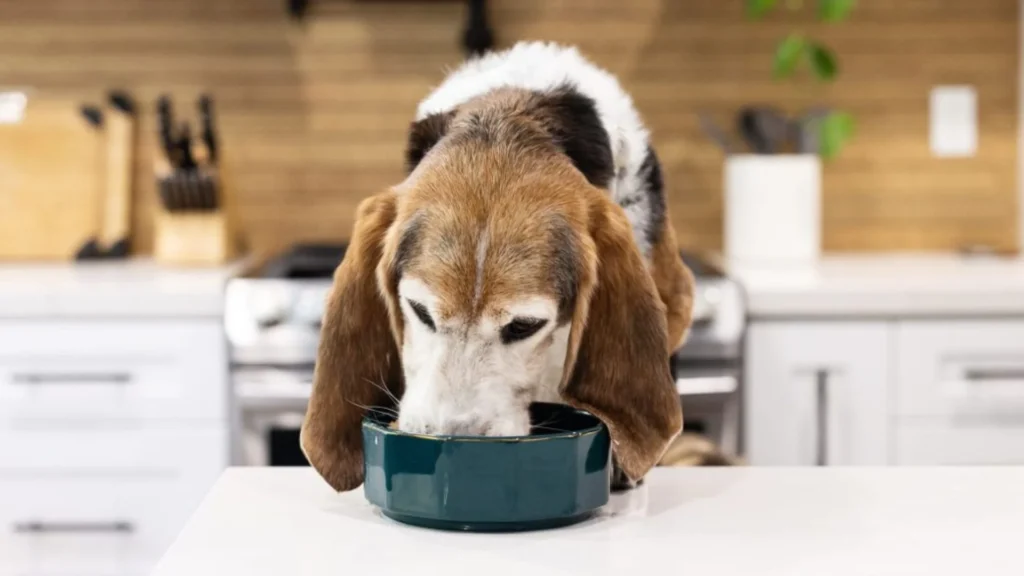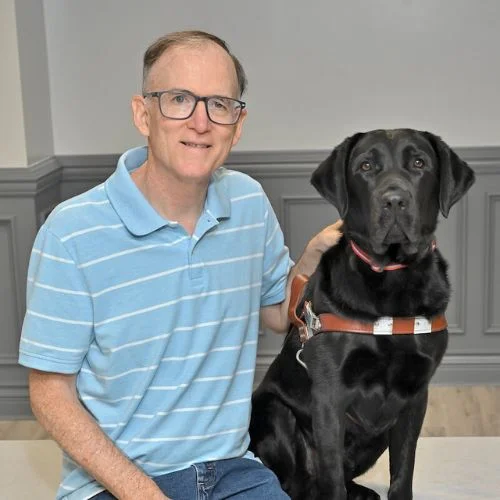Why do dogs swallow food whole? Dogs are known for their enthusiasm around mealtime. The way they dive into their food with gusto can sometimes seem amusing, especially when they swallow whole chunks without even pausing to chew.
If you’ve ever observed your dog gobbling down a meal without chewing much, you may have wondered why they seem to skip such an important step in the eating process.
So why do dogs sometimes swallow food whole, and is it something to be concerned about?
In this article, we’ll explore the reasons behind this behavior, including instinctual drives, anatomical factors, and potential health implications.
Why Do Dogs Swallow Food Whole?
Dogs often swallow food whole because their natural instincts and anatomy prioritize speed over chewing. In the wild, dogs would need to consume food quickly to avoid losing it to other predators or scavengers.
Their short digestive tract and sharp teeth are designed more for tearing rather than grinding, so they don’t need to chew as much.
Additionally, some dogs may simply be eager eaters or have a strong instinct to finish their food fast, leading them to swallow whole pieces without much chewing.
Is It Normal For Dogs To Swallow Food Whole?
Yes, it’s relatively normal for dogs to swallow food whole, especially if they are eager eaters or have been conditioned to eat quickly.
Dogs, particularly those from breeds with high prey drive, may swallow food whole as part of their natural eating behavior.
However, while it’s common, it’s not always ideal, as it can lead to potential health risks like choking, digestive upset, or even bloat (a serious condition where the stomach twists).
To help slow down a dog’s eating, you can try using puzzle feeders, slow-feed bowls, or spreading food out to encourage them to chew more thoroughly.
Do Dogs Chew Their Food?
Yes, dogs do chew their food, but not always as much as we might expect. Dogs with sharp teeth are designed more for tearing rather than grinding, so their chewing process is typically quicker and less thorough than in humans.
The amount a dog chews depends on factors like their breed, age, and how hungry they are. Some dogs, especially those that are more excited or anxious during mealtime, might swallow food quickly without chewing much, while others might take more time to break down their food, especially if it’s a larger or tougher piece.
Generally, they don’t chew to the same extent as we do, but they do enough to aid digestion.

How Do I Get My Dog To Stop Swallowing His Whole Food?
If you’re concerned about your dog’s habit of swallowing food whole, there are several ways to address the issue:
➤ Slow Feeders: Invest in a slow feeder bowl designed to encourage your dog to eat at a slower pace. These bowls have built-in obstacles that force your dog to work for their food, making it harder for them to gulp everything down at once.
➤ Puzzle Feeders and Interactive Toys: Puzzle feeders are another great way to slow down your dog’s eating. These toys often require your dog to solve a puzzle or work for their food, which can prevent them from swallowing everything in one go.
➤ Smaller Meals: Instead of feeding your dog one large meal, consider dividing their daily portion into smaller, more frequent meals. This can reduce hunger and allow your dog to eat more slowly.
➤ Training and Commands: Teaching your dog basic commands like “sit” or “wait” before feeding them can help control their excitement and prevent them from scarfing down food too quickly.
➤ Veterinary Check-Up: If your dog’s behavior seems abnormal, it’s always a good idea to visit a veterinarian. They can check for any underlying health issues, such as dental problems or gastrointestinal disorders, that might be contributing to the behavior.
How Long Should A Dog Rest After Eating?
After eating, it’s recommended that dogs rest for at least an hour to two hour. This gives their digestive system time to start processing the food before they engage in any strenuous activity.
It’s particularly important for large or deep-chested dogs, as they are more prone to a condition called bloat (gastric dilatation-volvulus), where the stomach fills with gas and twists.
This condition can be life-threatening, so it’s good practice to keep them calm and still after meals, avoiding intense exercise or play.
Smaller dogs or those without a high risk of bloat can generally tolerate activity after a shorter rest period, but it’s still a good idea to let them relax for a bit to prevent digestive discomfort.
How Swallowing Food Whole Can Be Harmful
While swallowing food whole might seem harmless, it can actually lead to several health risks for dogs. Here are some potential problems:
✔ Choking: Dogs that swallow large pieces of food without chewing are at a greater risk of choking. In severe cases, food can get lodged in their throat or airway, which can be life-threatening if not addressed immediately.
✔ Bloat (Gastric Dilatation-Volvulus): This condition, commonly known as bloat, occurs when a dog’s stomach fills with gas and becomes distended. In extreme cases, the stomach can twist, leading to a life-threatening emergency. Eating quickly increases the risk of bloat, particularly in deep-chested breeds like Great Danes or Boxers.
✔ Obesity: Swallowing food whole can also lead to overeating. Dogs that eat too quickly may not feel full until they’ve consumed more than they should, which can contribute to obesity over time.
✔ Digestive Problems: If food isn’t chewed properly, it may not be digested effectively. Large chunks of food can lead to indigestion, gas, or even constipation.
Conclusion
Dogs swallowing food whole is a behavior that can be linked to instinct, anatomy, anxiety, or even health issues.
While it’s a natural part of many dogs’ eating habits, it’s important to monitor their eating speed and make adjustments if needed.
If you have concerns about your dog’s eating habits, particularly if they show signs of distress or discomfort, it’s best to consult with a veterinarian.
With the right approach, you can help your dog develop healthier eating habits while still enjoying their meals.

Hello dog lovers, I am John. Welcome to my website healthydogfoods.com. I am happy to gain experience from my love for my dog and my pet dog. Through my experience and acquaintance with dog veterinarians, I have made myself a proper guide for dogs. I will tell you about dog care, their nutritious food, their proper safety and dog upbringing for a better life. Even though dogs cannot talk like humans, I will solve all the problems by observing their behavior. I will discuss the proper care and related issues of your dog. Which will give you the right answer to all the problems of your beloved dog.